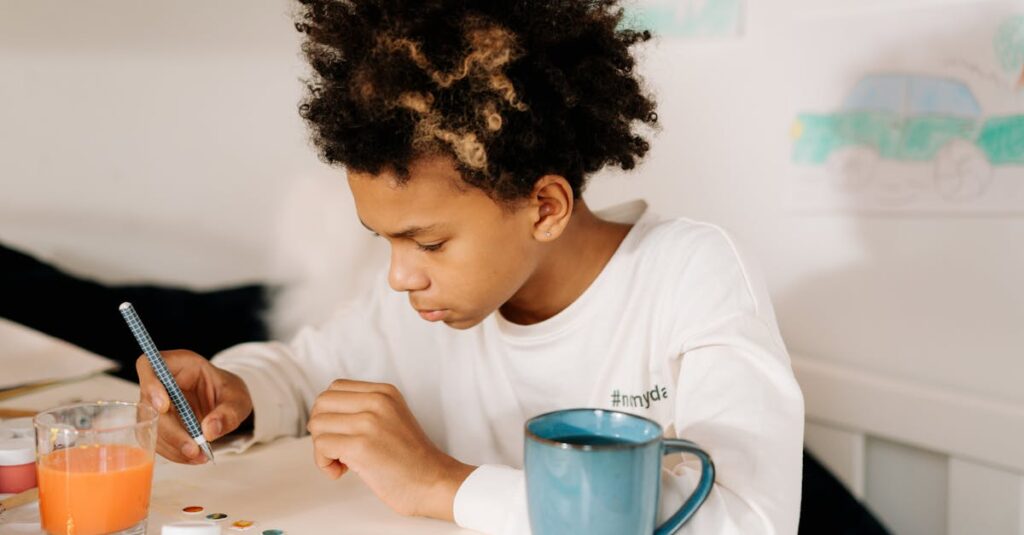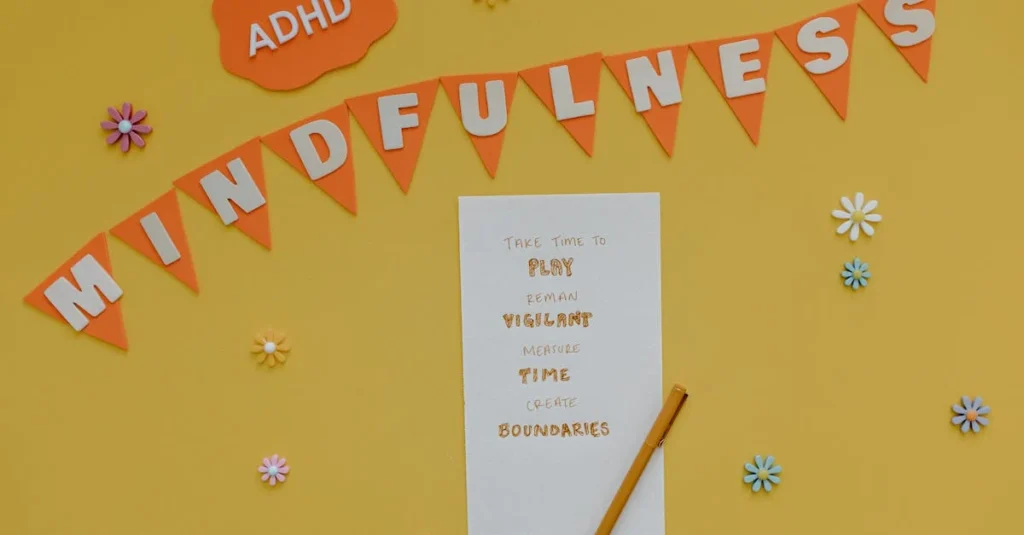In today’s fast-paced world, finding moments of peace can feel like a daunting task. This is where mindfulness skills from Dialectical Behavior Therapy (DBT) come into play. Designed to help individuals manage intense emotions and improve their overall well-being, these skills empower people to stay present and grounded in their daily lives.
Mindfulness isn’t just about meditation; it’s about cultivating awareness and acceptance in every moment. By integrating DBT mindfulness techniques, individuals can learn to observe their thoughts and feelings without judgment. This practice fosters resilience, enhances emotional regulation, and ultimately leads to a more fulfilling life. Understanding and applying these skills can transform not just personal challenges but also interpersonal relationships, making it a valuable tool for anyone seeking balance and clarity.
Mindfulness Skills DBT
Mindfulness skills DBT provide essential tools for developing awareness and acceptance in daily life. These skills focus on three core areas: observation, description, and participation.
- Observation: Individuals learn to notice internal experiences, such as thoughts and emotions, as well as external surroundings without altering them. This skill cultivates present-moment awareness.
- Description: Participants articulate what they observe, focusing on objective descriptions rather than interpretations. This process enhances clarity and reduces emotional reactivity.
- Participation: Engaging fully in activities allows individuals to immerse themselves in experiences, fostering connection to the present moment. This practice helps minimize distractions and promotes emotional regulation.
DBT emphasizes practicing mindfulness skills consistently. Regular application can lead to improved emotional stability and healthier relationships. Developing these skills enhances one’s ability to manage distress and improves overall mental health.
Practicing mindfulness techniques, such as breathing exercises and mindful observation, solidifies these concepts. By integrating these practices into daily routines, individuals can enhance their capacity to remain grounded amidst life’s complexities.
Importance of Mindfulness in Dialectical Behavior Therapy
Mindfulness plays a crucial role in Dialectical Behavior Therapy (DBT) by promoting awareness and acceptance in everyday life. By integrating mindfulness into therapeutic practices, individuals can navigate their emotions and relationships more effectively.
Benefits for Emotional Regulation
Mindfulness skills significantly enhance emotional regulation. Individuals practicing mindfulness learn to observe their emotions without getting overwhelmed. They cultivate the ability to identify triggers and patterns in their emotional responses. This awareness helps in modifying reactions and improving decision-making during high-stress situations. Emotional regulation skills also contribute to reduced instances of anxiety and depression, fostering a sense of stability and control.
Enhancing Interpersonal Effectiveness
Mindfulness skills improve interpersonal effectiveness by encouraging clear communication and understanding in relationships. By focusing on the present, individuals can listen actively and respond thoughtfully, rather than reacting impulsively. Mindfulness promotes empathy and compassion, aiding in the development of healthier connections. As individuals become more aware of their interactions, they can express their needs and boundaries with greater clarity, leading to enhanced relationship satisfaction and collaboration.
Core Mindfulness Skills DBT
Core mindfulness skills in Dialectical Behavior Therapy (DBT) enhance awareness and acceptance, providing foundational tools for emotional regulation. These skills include observing, describing, and participating.
Observing
Observing involves noticing thoughts, feelings, sensations, and surroundings without altering them. It fosters present-moment awareness, allowing individuals to recognize experiences as they arise. Practitioners focus on internal experiences or external stimuli without judgment. This non-reactive observation helps improve mental clarity and emotional stability.
Describing
Describing requires individuals to articulate their observations in a factual manner. By naming experiences objectively, individuals reduce emotional reactivity and increase clarity. This practice encourages a clear communication of feelings, facilitating better understanding of oneself and others. Describing enhances emotional regulation by creating distance between the observer and the emotional experience.
Participating
Participating emphasizes full engagement in activities to experience the present moment completely. This skill promotes immersion and connection, minimizing distractions that disrupt awareness. Active participation enhances emotional regulation by fostering mindfulness in daily activities, strengthening the ability to cope with distress. It encourages individuals to focus on the here and now, allowing for a more profound understanding of their feelings and actions.
Techniques to Develop Mindfulness Skills DBT
Developing mindfulness skills involves both formal and informal practices that facilitate greater awareness and acceptance. These methods enhance capabilities in observing thoughts, emotions, and experiences.
Formal Practice
Formal practice includes structured exercises designed to cultivate mindfulness. These exercises, often done in a quiet space, encourage a focused approach. Key formal practices include:
- Mindfulness Meditation: This involves sitting quietly, focusing on the breath, and gently guiding the mind back when distractions arise. Regular sessions, lasting from 5 to 30 minutes, enhance concentration and emotional regulation.
- Body Scan: Performing this practice entails mentally scanning the body from head to toe. Practitioners note sensations, tensions, or discomfort while fostering a non-judgmental awareness.
- Guided Imagery: Following a recorded or live guidance helps individuals visualize peaceful settings. This technique promotes relaxation and can alleviate stress.
- Walking Meditation: This involves focusing on the experience of walking, including the sensation of the feet touching the ground. Practitioners move slowly, being fully aware of each step.
Informal Practice
Informal practice integrates mindfulness into daily activities. This type of practice emphasizes awareness in routine moments. Techniques include:
- Mindful Eating: Engaging in meals with full attention can enhance the eating experience. Individuals can notice textures, flavors, and aromas, promoting satisfaction and reducing overeating.
- Mindful Listening: Actively listening to others fosters empathy and understanding. Focusing entirely on the speaker without formulating responses in advance enhances interpersonal connections.
- Mindfulness Reminders: Setting cues throughout the day—like timers or post-it notes—can remind individuals to pause and practice mindfulness. This breaks the cycle of busyness.
- Routine Activities: Bringing mindfulness to activities such as showering or washing dishes encourages present-moment awareness. Individuals can focus on sensations, movements, and the experience itself.
Utilizing both formal and informal mindfulness practices cultivates emotional resilience, enhances personal well-being, and improves interpersonal effectiveness. Regular engagement with these techniques strengthens awareness and acceptance, providing powerful tools for navigating life’s challenges.
Navigate Life’s Complexities
Embracing mindfulness skills from DBT can transform how individuals navigate life’s complexities. By fostering awareness and acceptance, these skills empower people to manage their emotions and improve their relationships effectively. Regular practice of techniques like observation, description, and participation not only enhances emotional regulation but also promotes personal well-being.
Integrating mindfulness into daily routines cultivates resilience and clarity. As individuals become more adept at recognizing their thoughts and feelings, they can respond to challenges with greater ease. Ultimately, the journey towards mindfulness is a valuable investment in one’s mental health and interpersonal connections.



